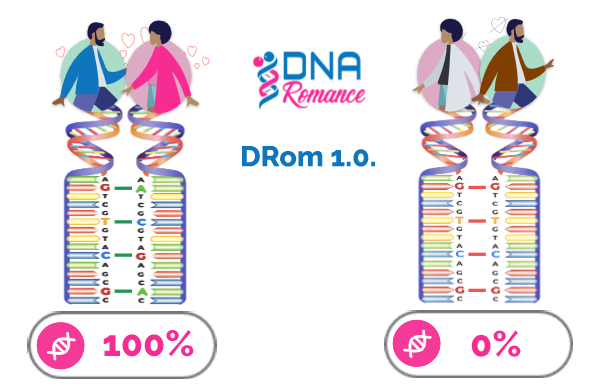Can DNA Predict Romantic Chemistry Online?
온라인 데이트에서 '화학'이란?
The compatibility between a donor and a recipient is crucial for a successful match. In traditional matching methods, the decision relies heavily on the available medical history, physical characteristics, and personal preferences. These factors can often lead to numerous mismatches and disappointments, making the process long and stressful. Our unique DRom 1.0 algorithm analyses DNA to predict compatibility of MHC genes between a potential sperm donor and a recipient, making the donor selection process more transparent and efficient.
DRom 1.0 알고리즘은 어떻게 작동합니까?
DNA Romance's DRom 1.0 algorithm takes into account 100 Single Nucleotide Polymorphism (SNP) markers situated in key genes, also referred to as the
compatibility genes. These genes have been proven to play a critical and influential role in successful conception and overall compatibility between donors and recipients.
Numerous scientific studies show that individuals with matching or near-matching DNA markers have a higher chance of successful insemination. The DRom 1.0 algorithm matches donors and recipients based on very similar DNA markers (figure 1) and accurately predicts compatibility, enhancing the success rate and efficiency of the donor-recipient matching process.

The DNA compatibility score lays a solid foundation for an effective sperm donor-recipient match, allowing individuals or couples to consider genetic factors involved in the conception of healthy offspring.